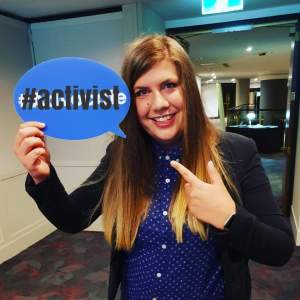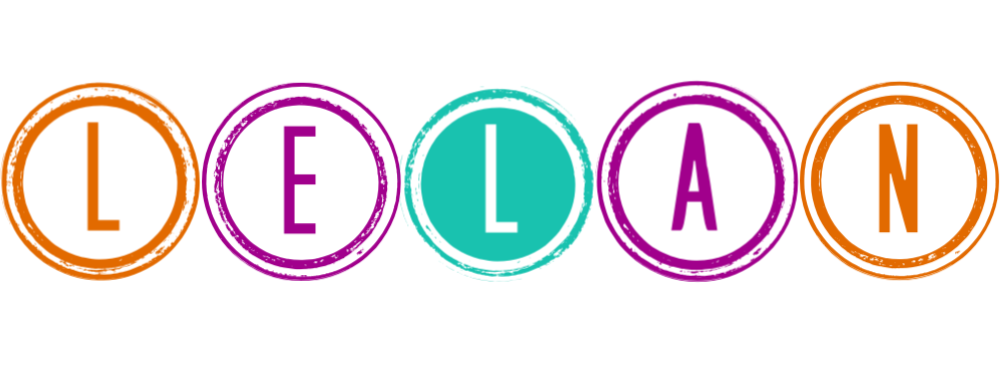New LELAN Project Worker
Opportunities, Lived Experience Leadership
LELAN has recently appointed a part-time Project Worker to coordinate our new Learning from Lived Experience (LfLE) Project. We are very happy to have Tanya Blazewicz join the team and can’t wait to see the project come to life.
This is a conversation we (Ellie Hodges, LELAN’s Executive Director, and Tanya) had on her first day.
How Tanya was feeling on her first day:
I am excited, and nervous. I am hoping that I do the project justice in the time that we have, it is so important to me.
Why the project is important to Tanya:
This project is important to me because I have lived experience of distress and crisis myself. I have attempted and survived suicide attempts and I have been bereaved by suicide. This provides a unique perspective for me.
Suicide prevention has always been something that I’ve been passionate about. Through my own personal lived experience I know that the mental health system as it stands is not working. I believe it is actually harming people, particularly harming people that are in crisis and that is not right.
I think that this project could make a big difference in helping rather than harming people by creating system reform; if that’s even the most appropriate thing. Maybe we need a new system all together.
What ‘doing the project justice’ looks like:
What I want is for people in the community to have enough time to hear about the project AND to have their voice heard. I want it to reach the far corners of our communities, to people that we don’t often hear from.
To me, the project will have been done justice if we hear from voices we haven’t heard from before.
I’m really keen to actually go out in person to different places where more marginalised voices are. To go to Aboriginal communities, trans femme and trans masc support groups and people with disability. I think online surveys make access easier for most, but not all, and the ones that it doesn’t make it easy for I’d like to be able to get out to in person.
What excites Tanya about the project and about LELAN as an organisation:
I’m really excited to hear from people about what worked actually. I don’t necessarily mean what worked in the system, but what works for them.
If people have survived a suicide attempt(s) or survived distress then they are still here, so something must have helped and that might not have been anything to do with the mental health system. It might have been spirituality, a hobby or a community and I want to know those things. Everyone has resilience within them and if we could somehow share those stories of hope it could be really helpful for people.
I really foresee LELAN becoming known as a platform or amplifier for people to get their voice heard. I hope that LELAN is seen as a collective voice and I want people to know that LELAN belongs to the whole community. I think that this project could be a starting point for amplifying the voices and showing that, but it could also lead onto addressing and providing advocacy around some of the other issues that we uncover in our conversations with people.
More about who Tanya is:
I am person with lived experience of so-called complex mental illness, although that’s not really how I describe it anymore. That was once how I described it but even more I’m a person who has lived experience of oppression and social injustice, trauma and recovery. But that’s not really much of my identity at all. I am also a proud lesbian, a fiance, an Aunty, a daughter, sister, a granddaughter. I am someone who loves football and the Adelaide Crows, I love doing art, I love my pets and I’m passionate about activism in many areas but really focus it on mental health and and probably LGBT as well.
My why for speaking up and getting active is that for a long time I feel like I was oppressed and that my voice wasn’t heard, especially when I was in the mental health system. Going in and out of hospital my voice wasn’t heard, I didn’t have much say in my treatment even when it was ‘voluntary’. I feel like when I did have a say I wasn’t believed anyway because I was seen as a ‘mad woman’, in a different way to how I use those words now.
I think that was the most harmful part of my whole experience; being voiceless and not being able to share my story, of not being listened to. That’s something that I want to prevent anyone else going through. That does really transfer over that same way to the LGBT area, I was closeted for a long time and in a similar way silenced.
A final story that Tanya holds onto in her activism and work:
My fiancé told me a story that was told by her uncle Oscar about starfish and a man.
A man is walking along a beach and there are many starfish swept up on the shore. The man begins meticulously picking them up one by one and throwing them back into the ocean. A little child comes up to him and says, ‘What are you doing? You’re wasting your time. Your efforts aren’t going to matter by tomorrow, they will all of swept up again.’ Then the man picks up a starfish and says, ‘To this one, it matters.’
That’s a story that I always try and keep in mind in the peer work that I do outside of this work with LELAN. Every time I think about that story I think, ‘Of course I’ll continue picking up starfish and throwing them back in’, but I really wish that we could think of a more systemic solution to the starfish ending up on the shore. There must be an over-reaching way of helping the starfish and that’s the approach that I would like to take, not only helping the individual but helping people broadly by implementing something to help a lot of starfish at once.
Connecting with Tanya:
Tanya will be working with LELAN on Thursday’s until June 30. She can be contacted via tanya@lelan.org.au . Outside of LELAN Tanya is very active in the lived experince and mental health space which you can follow on twitter.



